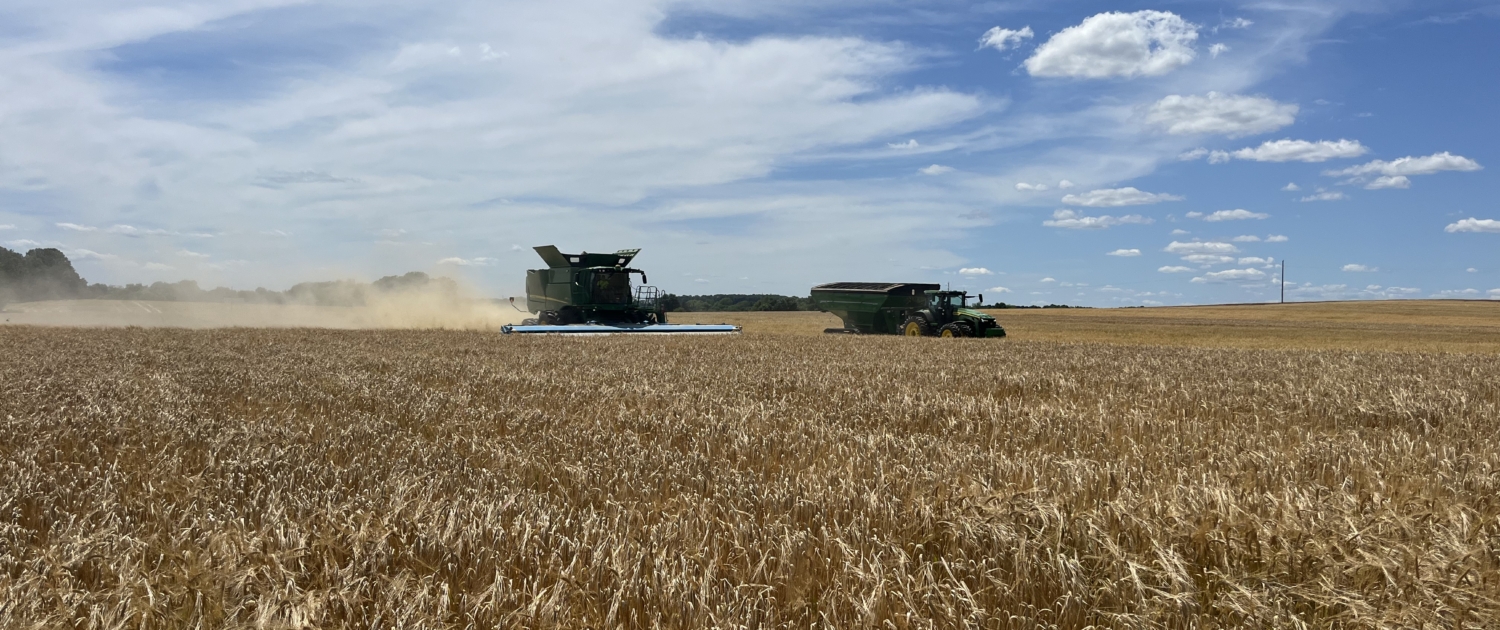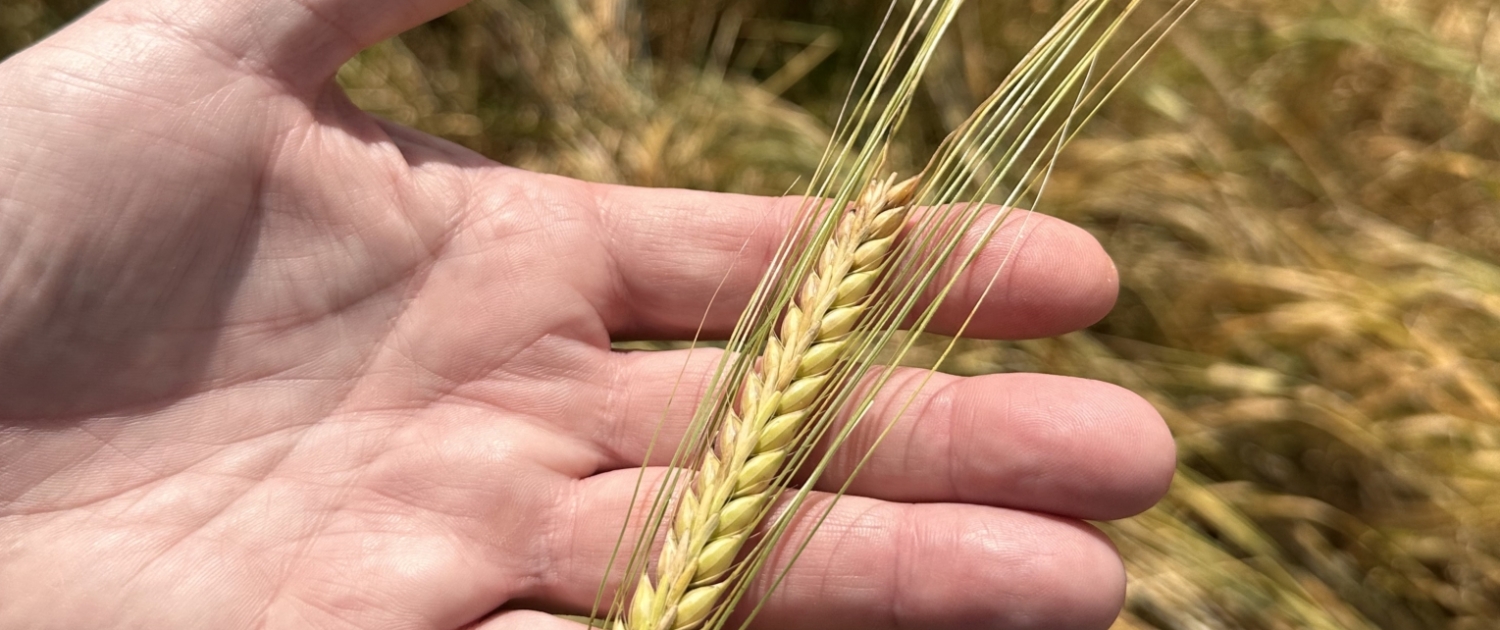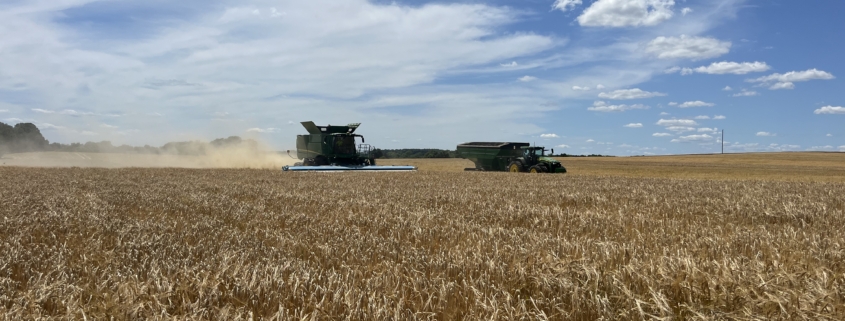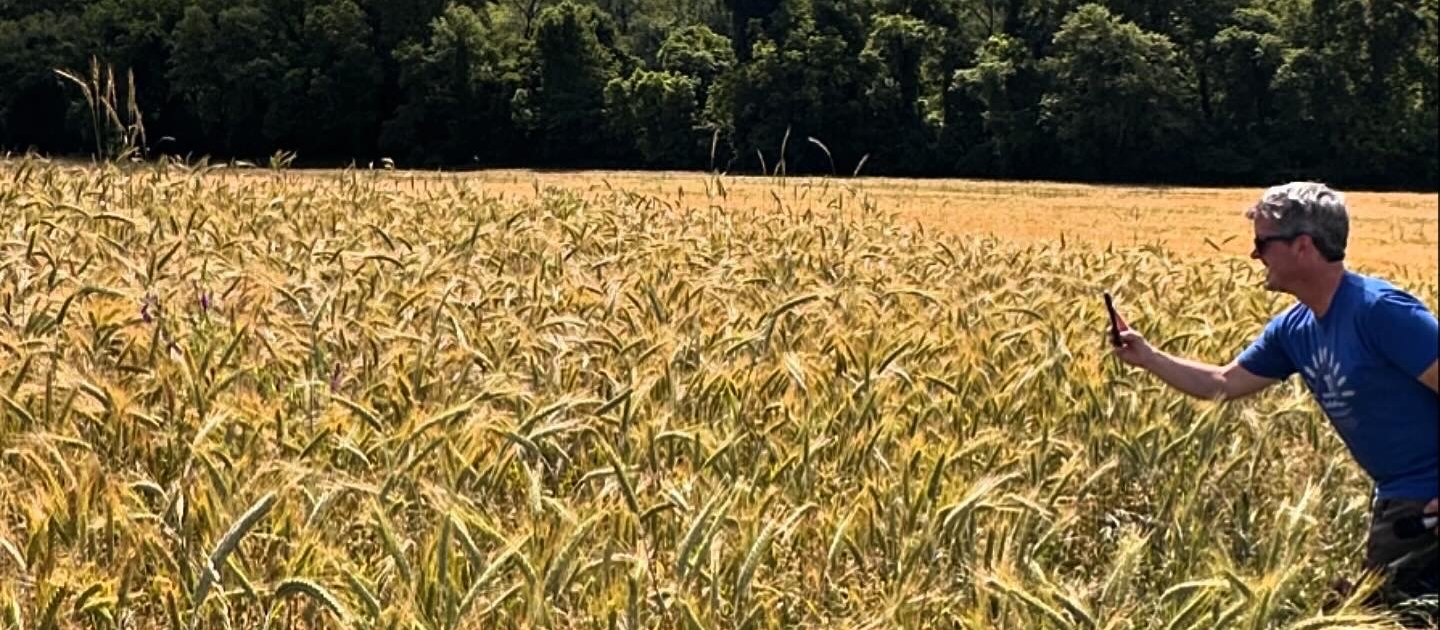Riverbend Malt House 2024 Harvest Update: Avalon Barley Takes The Lead

Walnut Grove Farms – Adairville, Kentucky
One of the most challenging aspects of running a malt house is planning for harvest season. We sit around a table at the end of every summer armed with our sales data, information on market trends, available acreage, and the latest variety trial data from our agriculture extension partners.
Even with all that data, the task can be daunting. We have to think 18 months ahead to ensure that we have adequate supply to meet demand. That often requires a leap of faith— sometimes we find ourselves with excess grain and malt from a variety that never took off, or the opposite: a shortage of something in demand. Both are problematic from a relationship and cash flow management perspective. Every year teaches us that we can only do so much planning, and ultimately we get what we get. Here’s what we got in 2024:
Regenerative Agriculture
In addition to covering our standard product line, innovation also has a seat at the table. This year’s plan included several new farms and varieties, along with our first foray into certified regenerative agriculture. After rigorous auditing, we became the first Certified Regenified™ malt house on the planet. Regenified™, a practice and outcomes-based land verification and product certification program is paving the way for a healthier planet and transparency across our food system, and we are thrilled to partner with them to affect change in the entire small grains supply chain. Learn more at regenified.com.

Avalon Barley at Biltmore Estate
Avalon Barley Takes The Lead
Barley represents about 70% of what we produce, so that acreage takes center stage during this process. Just like in the early days, we attempt to mitigate risk by spreading different varieties and volumes across multiple farms throughout the Southeast. We listen to our growers about what is working and isn’t on their individual farms. They walk and work the land daily, and we take their observations seriously.
Much like our customers, our growers are also fans of the Avalon barley. This variety factored more heavily in this year’s mix as we look to diversify our mix of 2-row varieties. This year marks the third year Avalon barley has been in production for us, and we are excited to see it take a starring role! In the coming months we will welcome high-quality lots of this new varietal from farmers in North Carolina, Virginia, Maryland, and Tennessee.
At The Mercy Of Mother Nature
While the Avalon barley made it to harvest somewhat unscathed, other varietals and several of our small batch, innovation projects took it on the chin this year. Rainfall patterns were unseasonably dry in April and unseasonably wet in May, a pattern that distinctly impacts quality. A dry April restricts kernel growth when the barley is in the crucial ‘head fill’ stage. As the grain transitions into the ripening phase in mid to late May, excessive precipitation can stress the kernels and potentially trigger pre-harvest sprout damage. These impacts were evident as we reviewed lab data showing low test weight and reduced RVA levels (rapid viscosity analysis), which is a measure of pre-harvest sprout damage.
Thankfully, only between 10 and 15 percent of our acreage was impacted. We still estimate that we will have sufficient high-quality grain to support production over the year.
We deeply appreciate the efforts of our farming partners this year. Their work makes a tremendous impact on the quality of our harvest and ensures that we’ll have truly local pints and spirits for the foreseeable future. Be sure to raise a glass to them the next time you belly up to the bar!
Happy Craft Malt Month!
— Brent Manning




